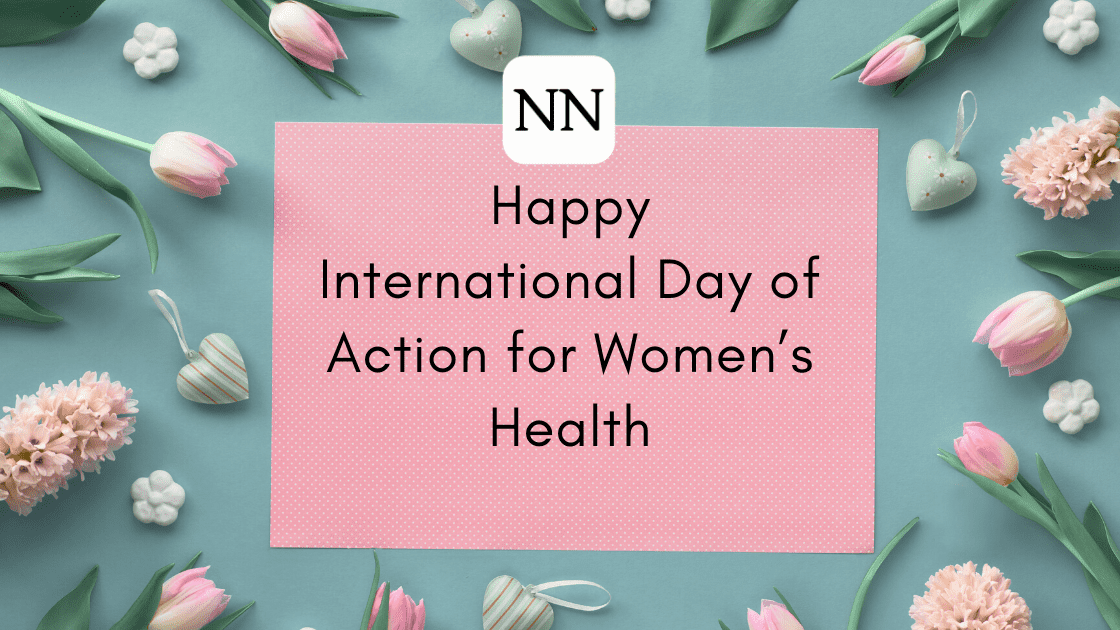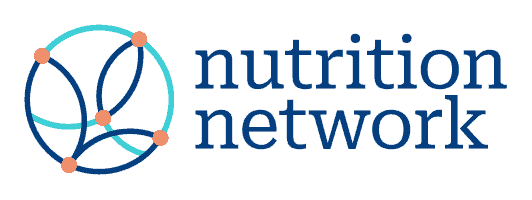
International Day of Action for Women’s Health
By Georgina Pujol-Busquets Guillén – PhD Student, Faculty of Health Science, University of Cape Town, South Africa.
In 1987, the 28th of May was declared ‘International Day of Action for Women’s Health’ during the reunion of the Women’s Global Network for Reproductive Rights (WGNRR) in Costa Rica. 12 years later in 1999, it was officially recognized by the South African authorities.
Women’s health and the importance of social determinants
A population’s health is defined as a state of complete physical, mental and social well-being and not merely the absence of overall disease. With this in mind, we must consider the social determinants which influence women’s health and wellbeing. These include diversity (ethnicity, geographic location, disability, sexuality), life stages and hormonal cycles, and last but not least, access to resources including income, health care, education, employment, social connections, safety and security. Women’s social connectedness, which is key to overcoming many of the gender-based barriers, can be interrupted by various factors, such as violence, safety perceptions and geographical isolation. Health outcomes are closely related to the number of years spent in formal education. The good news is that more girls and women across the globe have access to basic education than ever before. There is however, still around 70 million girls that are not in school every day and more than half a billion females worldwide are illiterate—about twice the number of illiterate males. The challenges these women face range from a lifetime of lower income, poorer health outcomes – including higher risk of infectious diseases (especially HIV and tuberculosis) and non-communicable diseases (NCDs) – and higher rates of mental illness. Collectively, women have made major advances in education although educational choices remain highly segregated on the basis of gender. While women have improved their earnings relative to men in recent years, a sizeable gap remains. Based on these improved earnings, the global gender gap is predicted to close in just under 100 years. In all countries, at all levels of income, health and illness follow a social gradient—the lower the socioeconomic position, the worse the health. Women are almost always on the lower rungs of each level. Furthermore, women with all types of disabilities and special needs are more likely to have greater financial stress, greater difficulty in accessing health services and will spend a greater proportion of their income on medical care. Moreover, while lesbian, bisexual and transgender women are a diverse group, the discrimination, violence and marginalisation associated with homophobia and heteronormativity impacts heavily on their health and wellbeing, creating high rates of depression and risky behaviour.
Women’s health burdens and the gender bias in research
A women’s experience of illness is different to a man’s, especially in cardiovascular disease (CVD), lung cancer, depression and Alzheimer’s disease. Despite some recent progress, women still have not achieved equity in biomedical and health outcomes research. These differences and that, overall, women are less represented in clinical trials and only 30% of researchers worldwide are females – creates a massive knowledge gap on female health.
One of the main components of metabolic syndrome is being overweight or obese, and the rates are higher among adult women across the globe, regardless of educational or socioeconomic status. This indicates that women are disproportionally affected by the obesity epidemic on a global scale and could suggest that women are more likely to suffer poor-health outcomes compared to men. CVD is the leading cause of death for women and although more men die of heart disease than women, females are highly underdiagnosed, such that it’s too late to help them once the condition is discovered. Women who have heart attacks often do not have the same symptoms as men: such as upper abdominal pain, light-headedness or fatigue. Moreover, only one-third of CVD clinical trial subjects are female and fewer, around 31%, of trials that include both genders report outcomes by sex. CVD is the most common cause of death in Diabetics. Type 1 diabetes is associated with a 47% excess risk of heart failure in women compared to men, whilst type 2 diabetes mellitus has a 9% excess risk of heart failure for women than men. The estimated prevalence of diabetes in women aged 20–79 years is slightly lower than in men (9.0% vs 9.6%). Globally, there are more deaths associated with diabetes in women (2.3 million) than in men (1.9 million).
Another significant contributor to the disease burden worldwide, which appears to affect women (70%) more than men, is depression. We know that major endocrine changes throughout a woman’s life, including puberty, pregnancy, and menopause, have been directly linked to increased risk of this disease. Moreover, society has been obsessed with the ‘image of a woman’ and body shaming is linked to all sorts of psychological outcomes apart from depression, including eating disorders and anxiety. Depression can also be a consequence or a symptom of an autoimmune disease which are a group of disorders where the immune system attacks the body and destroys or alters tissues. There are more than 80 serious chronic illnesses in this category, including lupus, multiple sclerosis, Hashimoto and type 1 diabetes. Last but not least, Alzheimer’s disease disproportionately affects women—two-thirds of adults aged 65 or older with the disease are women. But not only that, women are also the primary caregivers of adult loved ones with this disease, meaning that basically they shoulder not only the risk but the burdens of the illness. In terms of cancer incidence, breast cancer is the most common cancer in women, even though it is second to lung cancer as the leading cause of death for women. It is known than non-smoking women are three times more likely than non-smoking men to have lung cancer but still women are less likely to enrol in clinical trials, and those from racial and ethnic minorities are particularly less common.
Low carbohydrate high fat lifestyle to improve women’s health and well-being
There is overwhelming evidence to say that low carbohydrate high fat (LCHF) lifestyle shows promise when used therapeutically to improve certain factors of health including improved blood sugar regulation and other markers of metabolic health. One of the main reasons why women turn to this lifestyle is to lose excess body fat by increasing fat burning and decreasing hunger-promoting hormones like insulin — all of which may help encourage fat loss. In addition, research also shows that LCHF diets may improve physical function, increase energy levels, and decrease food cravings in women with endometrial and ovarian cancer. Furthermore, this lifestyle has shown health improvements when used as a treatment alongside standard treatments like chemotherapy for other cancers that affect women including glioblastoma multiforme, an aggressive cancer that affects the brain. Although there is an increasing number of trials including female participants, more effort is required to include women in clinical trials and to narrow the massive gender gap that exists in research to ultimately improve women’s health. In order to help bridge this gender-based health-gap the Eat Better South Africa program (a community nutrition and health education program from The Noakes Foundation) have predominantly been working with women for the last five years to improve their health and well-being. The aim of these programs is to empower people from under-resourced communities to manage their metabolic health conditions. We believe in the power of education to change peoples’ health behaviors and consequently, their overall health. Women are key to successful community programs and are the ones that are most likely to change and improve not only their health but the health of those around them.
Georgina Pujol-Busquets Guillén
PhD Student, Faculty of Health Science, University of Cape Town, South Africa.
Associate professor, MSc Nutrition and Public Health, Faculty of Health Science, Open University of Catalonia, Spain.
References
Cardiology’s problem women. Lancet. 2019;393(10175):959.
Cislak A, Formanowicz M, Saguy T. Bias against research on gender bias. Scientometrics. 2018;115(1):189–200.
García-González J, Forcén P, Jimenez-Sanchez M. Men and women differ in their perception of gender bias in research institutions. PLoS One. 2019;14(12):1–21.
Holdcroft A. Gender bias in research: How does it affect evidence based medicine? J R Soc Med. 2007;100(1):2–3.
IDF Diabetes Atlas. Ninth edition 2019. International Diabetes Federation. Available at: https://diabetesatlas.org/upload/resources/material/20200302_133351_IDFATLAS9e-final-web.pdf
Kautzky-Willer A, Harreiter J, Pacini G. Sex and Gender Differences in Risk, Pathophysiology and Complications of Type 2 Diabetes Mellitus. Endocr Rev. 2016;37(3):278‐316. doi:10.1210/er.2015-1137
Ludwig DS. The Ketogenic diet: evidence optimism but high-quality research needed.
Noakes, TD. So What Comes First: The Obesity or the Insulin Resistance? And Which Is More Important?, Clinical Chemistry, Volume 64, Issue 1, 1 January 2018, Pages 7–9, https://doi.org/10.1373/clinchem.2017.282962
Noakes TD, Windt J. Evidence that supports the prescription of low-carbohydrate high-fat diets: a narrative review. British Journal of Sports Medicine. 2017;51:133-139.
Pujol-Busquets G, Smith J, Larmuth K, Fàbregues S, Bach-Faig A. Exploring the Perceptions of Women from Under-Resourced South African Communities about Participating in a Low-Carbohydrate High-Fat Nutrition and Health Education Program: A Qualitative Focus Group Study. Nutrients. 2020;12(4):894.
UNESCO. Just 30% of the world’s researchers are women. What’s the situation in your country? Available at: https://en.unesco.org/news/just-30-world%E2%80%99s-researchers-are-women-whats-situation-your-country
Weber DD, Aminazdeh-Gohari S, Kofler B. Ketogenic diet in cancer therapy. Aging. 2018;10(2).
Webster CC, Murphy TE, Larmuth KM, Noakes TD, Smith JA. Diet, Diabetes Status, and Personal Experiences of Individuals with Type 2 diabetes Who Self-Selected and Followed a Low Carbohydrate High Fat diet. Diabetes Metab Syndr Obes. 2019;12:2567-2582.
World Health Organization (WHO). Gender equality is good health. 10 facts on women’s health. Available at: https://www.who.int/gender/documents/10facts_womens_health_en.pdf?ua=1
